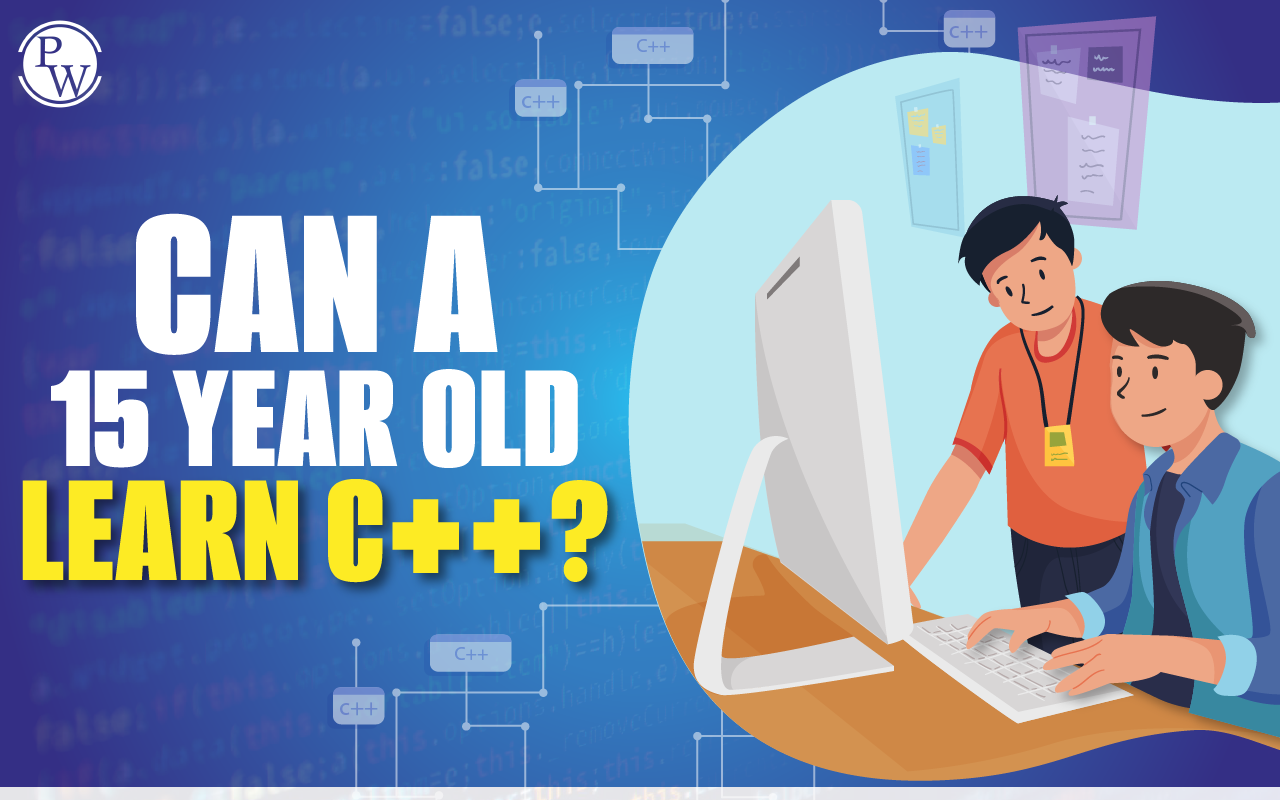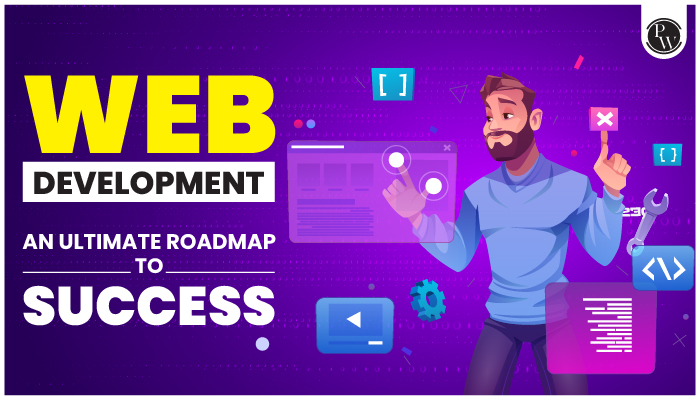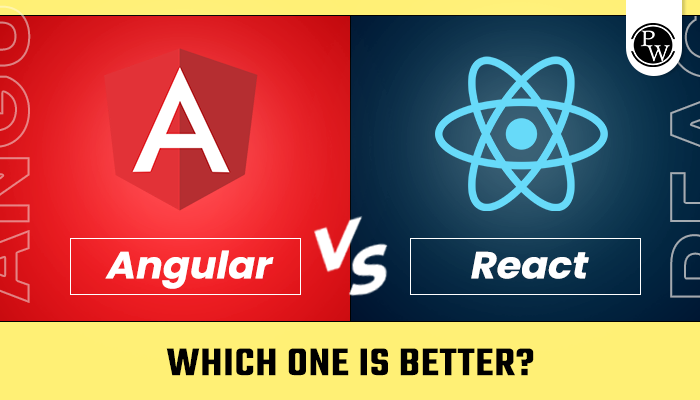C++ For Kids offers an engaging way for kids to embrace their analytical side and learn problem-solving skills while having fun!
C++ For Kids: Are you looking for an engaging and exciting way to teach your kids programming language? Or maybe you’re simply interested in introducing them to coding? If so, C++ is the perfect language!
Learning C++ can put children on the path to discovering the amazing possibilities of computer code, from creating apps and games all by themselves or even writing full programs that control robots or devices! With kid-friendly tutorials now available online, learning this essential language has never been easier or more engaging. So, get ready to have some serious techy fun as we explore how introducing your child to C++ can open a whole new world of creative possibilities!
C++ For Kids Overview
Are you a parent looking for an effective and fun way to introduce your child to coding and programming? Coding can open endless possibilities for both the present and future of your kids. It’s easier than ever before, with lots of creative resources available online, to introduce coding into their lives in a playful way.
This blog post will discuss why introducing Kids to C++ specifically is one of the best ways they’ll learn how to code- from understanding basic syntax to creating their own programs! We’ll talk about all the benefits that come with starting off learning this language, as well as provide an overview of some great resources available so that parents may get started on helping their kids discover coding!
Also Read: C++ Programming: An Introduction
Can a Kid Learn C++?
Yes, a child can learn C++. Preschool C++ learning is growing more popular as kid-friendly programming tools and instructional materials become accessible. Nonetheless, there are a few things to remember:
Interest and Motivation:
The child should be interested in computers, technology, or game development. Motivation plays a crucial role in sustaining the learning process.
Visual Programming Tools:
Kids can start with visual programming tools that introduce coding for kids concepts graphically and interactively. They can transition to text-based languages like C++ as they become more comfortable.
Kid-Friendly Courses:
Online platforms and courses specifically designed for children offer a playful and interactive approach to learning C++. These courses often use games, puzzles, and animations to teach programming concepts.
Scratch Programming:
Before diving into C++, kids can benefit from learning the basics of programming using visual languages like Scratch. It provides a block-based programming environment that introduces fundamental concepts.
Interactive Learning Tools:
Kids benefit from interactive and engaging learning tools, such as visual programming environments or educational games, designed to teach C++ concepts in a child-friendly manner.
Interactive Learning Platforms:
Interactive learning platforms and coding for kids environments designed for kids offer a hands-on and engaging way to learn C++. These platforms often provide immediate feedback and encouragement.
Parental or Teacher Guidance:
Having guidance and support from parents, teachers, or mentors can make the learning experience smoother. Adults can assist with answering questions, explaining concepts, and providing encouragement.
Age-Appropriate Resources:
Choose age-appropriate learning resources and platforms specifically designed for kids. These resources often use a more visual and game-like approach to introduce programming concepts.
Start with Basics:
Begin with the basics of programming before diving into complex C++ concepts. Understanding fundamental programming principles helps build a strong foundation.
Fun Learning Activities:
Incorporate fun and creative activities into the learning process. This could include coding for kids games, projects, or interactive exercises that make learning enjoyable.
Progress at Their Own Pace:
Children have different learning styles and paces. Allow them to progress at their speed and avoid overwhelming them with too much information at once.
What is C++ Programming?
C++ stands out as one of the most widely utilized programming languages in the contemporary tech landscape. Renowned for its robust capabilities, C++ empowers developers to construct diverse programming languages and applications.
Positioned as an enhanced iteration of the C programming language, C++ incorporates additional features such as function overloading, templates, and exception handling, solidifying its reputation as a powerful and versatile programming tool. This evolution has led to the terminology “C++” (pronounced as “C plus plus”).
This programming language finds extensive application in various domains, including game development, operating systems, and web browsers. Notably, some of the world’s most iconic websites rely on the prowess of the C++ language. Giants like Google, Facebook, Yahoo!, Twitter, and YouTube leverage C++ to underpin their systems, attesting to its efficiency and widespread usage in the digital realm.
C++ Programming for Middle School
Let’s delve into each of the basic concepts in C++ programming for middle school students:
Introduction to Programming:
- Definition: Programming involves giving instructions to a computer to perform tasks.
- Application: Understanding how computer programs run and their real-world applications.
Variables:
- Definition: Variables are containers for storing data.
- Application: Using variables to store and manipulate different types of information.
Data Types:
- Definition: Data types define the kind of data a variable can hold.
- Application: Choosing appropriate data types for different scenarios.
Operators:
- Definition: Operators perform operations on variables and values.
- Application: Performing basic mathematical and comparison functions.
Conditional Statements:
- Definition: if-else statements make decisions based on conditions.
- Application: Writing code that behaves differently under different conditions.
Loops:
- Definition: Loops execute a block of code repeatedly.
- Application: Implementing repetitive tasks efficiently using loops.
Functions:
- Definition: Functions are reusable blocks of code.
- Application: Creating modular code by defining and calling functions.
Arrays:
- Definition: Arrays store collections of elements.
- Application: Using arrays to handle groups of related data.
Input and Output:
- Definition: Taking input from users and displaying output.
Debugging:
- Application: Learning to find and correct common coding mistakes.
Projects and Games:
- Definition: Applying learned concepts to create small coding projects and games.
- Application: Encouraging creativity and problem-solving through practical coding.
Ethical Coding Practices:
- Definition: Emphasizing responsible and ethical coding behavior.
- Application: Instilling respect for intellectual property and ethical use of code.
Here is an example of C++ for kids:
#include <iostream>
int main() {
std::cout << “Hello, World!\n”;
return 0;
}
Explanation
- #include <iostream>: Includes the Input/Output Stream Library.
- int main() {: Start of the main function.
- // This is a comment.: Comments are for human readability and are ignored by the computer.
- std::cout << “Hello, World!\n”;: Prints “Hello, World!” to the console.
- return 0;: Indicates that the program ran successfully.
- }: End of the main function.
This simple program introduces the basic structure of a C++ program, the main function, and the cout statement for printing to the console. You can check Physics Wallah’s Skills courses to find the relevant course according to your choice!
Benefits of Learning C++ For Kids
Learning C++ can offer various benefits for kids, fostering both cognitive and practical skills. Here are some advantages of kids learning C++:
- Problem-Solving Skills: Learning C++ involves solving problems and creating algorithms, which enhances a child’s critical thinking and problem-solving abilities.
- Logical Thinking: Programming in C++ requires logical thinking and sequencing, helping kids develop a structured approach to solving challenges.
- Career Opportunities: Acquiring skills in C++ opens potential career paths in technology and programming. While they may not be job-ready immediately, it sets the stage for future career opportunities.
- Understanding Technology: Learning C++ gives kids insights into how technology works. They can understand the logic behind the software they use daily, empowering them in the digital age.
- Building Confidence: Successfully writing code in C++ and creating programs instills a sense of accomplishment and boosts a child’s confidence in their abilities.
- Teamwork and Collaboration: Many coding projects involve collaboration. Learning C++ can encourage teamwork as kids work together to create and debug code.
- Analytical Skills: Writing and debugging code require careful analysis. Kids develop analytical skills as they review and improve their programs.
- Adaptability: Programming languages evolve, and learning C++ equips kids with the adaptability to pick up new languages and technologies as they emerge.
- Digital Literacy: In an increasingly digital world, understanding programming languages like C++ contributes to overall digital literacy.
- Educational Games and Simulations: Learning C++ through educational games and simulations makes the process engaging and enjoyable for kids.
- Preparation for Advanced Concepts: As kids progress in their coding journey, their understanding of C++ provides a solid foundation for learning more advanced programming languages and concepts.
Learning C++ at a young age can be a valuable and empowering experience, equipping kids with skills beyond coding into problem-solving, creativity, and logical thinking.
Also Read: C Programming Language Basics Tutorial and Syllabus
At What Age Can Kids Learn C++?
The age at which kids can start learning C++ varies, depending on their interests, cognitive development, and exposure to technology.
- Basic Reading Skills: Kids should have foundational reading skills to understand programming concepts, syntax, and instructions.
- Mathematical Understanding: Although programming requires logical thinking and problem-solving, even though C++ doesn’t initially demand sophisticated math skills, it can be advantageous to have a basic understanding of mathematical ideas.
- Early Adolescents: Ages 12 to 14 Computer programming is a popular interest among young teens. Children may be cognitively capable of understanding the basic ideas of programming languages like C++ at this age.
- High School Level (15-18 years old): High school students often encounter programming courses in their syllabus. C++ is a suitable language for high school students who have some familiarity with basic programming concepts.
- Advanced Learners (10-12 years old): Some exceptionally motivated and tech-savvy children may start learning C++ around 10 or 12. This is more likely if they have prior experience with simpler programming languages or visual programming environments.
- Availability of Kid-Friendly Resources: Kid-friendly learning resources and platforms can also influence a child’s learning of C++. Graphical programming interfaces and game-based learning can make C++ more accessible to younger learners.
- Individual Readiness: Readiness varies among children, even within the same age group. Some kids may naturally gravitate towards programming concepts, while others may need more time and exposure.
- Prior Coding Experience: If a child has previous experience with visual programming languages or simpler coding environments, they may be ready to explore text-based languages like C++ at an earlier age.
- Parental or Teacher Guidance: Having supportive adults, such as parents or teachers, who can provide guidance, answer questions, and make the learning process interactive can significantly impact a child’s readiness to learn C++.
- Interactive Learning Tools: Engaging, child-friendly learning tools, games, and platforms that interactively teach C++ can make the learning process more enjoyable for kids.
- Individual Learning Pace: Every child is unique, and their readiness to learn programming languages varies. Some may grasp C++ concepts earlier, while others prefer to start later.
Basic Concepts for C++ For Kids Online Free With Examples
Here are the basic concepts for C++ for kids with examples:
1) Variables
These serve as designated memory locations where data is stored during program execution.
Example:
#include <iostream>
using namespace std;
int main() {
int age = 10; // Here, ‘int’ is a type representing whole numbers.
cout << “I am ” << age << ” years old.” << endl;
return 0;
}
2) Data Types
These represent the various values that can be utilized in a program, determining the nature of variables.
Example:
#include <iostream>
using namespace std;
int main() {
int integerVar = 42;
float floatVar = 3.14;
char charVar = ‘X’;
cout << “Integer: ” << integerVar << “, Float: ” << floatVar << “, Char: ” << charVar << endl;
return 0;
}
3) Operators
These are symbols or actions that facilitate the manipulation of data, such as addition (+), subtraction (-), multiplication (*), and division (/).
Example:
#include <iostream>
using namespace std;
int main() {
int x = 5, y = 3;
int sum = x + y;
int difference = x – y;
int product = x * y;
float quotient = static_cast<float>(x) / y; // Cast to float for accurate division
cout << “Sum: ” << sum << “, Difference: ” << difference << “, Product: ” << product << “, Quotient: ” << quotient << endl;
return 0;
}
4) Functions
Programs structured to be invoked at different points or specific times in your code enabling program modifications or information extraction.
Example:
#include <iostream>
using namespace std;
int addNumbers(int a, int b) {
return a + b;
}
int main() {
int result = addNumbers(3, 7);
cout << “Sum: ” << result << endl;
return 0;
}
5) Classes
A mechanism to organize similar or related variables, allowing them to function collectively as a unit rather than independently.
Example:
#include <iostream>
using namespace std;
class Rectangle {
public:
int length;
int width;
int calculateArea() {
return length * width;
}
};
int main() {
Rectangle rect;
rect.length = 5;
rect.width = 3;
cout << “Area of Rectangle: ” << rect.calculateArea() << endl;
return 0;
}
6) Arrays
Similar to mathematical arrays, these serve as ordered lists of objects in programming.
Example:
#include <iostream>
using namespace std;
int main() {
int numbers[5] = {1, 2, 3, 4, 5}; // Integer array
cout << “Array Elements: “;
for (int i = 0; i < 5; ++i) {
cout << numbers[i] << ” “;
}
cout << endl;
return 0;
}
7) Constants
Analogous to variables, constants are user-defined values that remain unaltered throughout the program.
Example:
#include <iostream>
using namespace std;
int main() {
const float PI = 3.14; // Constant variable
cout << “Value of PI: ” << PI << endl;
return 0;
}
8) Strings
Collections of characters, like ‘hello’ or ‘1234’, are utilized in programming to present information, similar to text messages and emails on electronic devices.
Example:
#include <iostream>
#include <string>
using namespace std;
int main() {
string greeting = “Hello, C++!”; // String variable
cout << “Greeting: ” << greeting << endl;
return 0;
}
9) Modules
Resembling classes are restricted to a single instance within a program, unlike classes that can have multiple instances.
// Module1.cpp
#include <iostream>
using namespace std;
void greet() {
cout << “Hello from Module 1!” << endl;
}
// Module2.cpp
#include <iostream>
using namespace std;
void farewell() {
cout << “Goodbye from Module 2!” << endl;
}
// main.cpp
#include <iostream>
using namespace std;
// Declaration of functions in other modules
void greet();
void farewell();
int main() {
greet();
farewell();
return 0;
}
10) Switch Case
Alters the program’s flow based on the provided value, providing a mechanism for conditional branching.
#include <iostream>
int main() {
int choice;
std::cout << “Enter a choice (1-3): “;
std::cin >> choice;
switch(choice) {
case 1:
std::cout << “You chose 1\n”;
break;
case 2:
std::cout << “You chose 2\n”;
break;
case 3:
std::cout << “You chose 3\n”;
break;
default:
std::cout << “Invalid choice\n”;
}
return 0;
}
11) User Input
Concept: Teach how to take input from the user.
Example:
#include <iostream>
using namespace std;
int main() {
int age;
cout << “Enter your age: “;
cin >> age;
cout << “You entered: ” << age << endl;
return 0;
}
12) Conditional Statements:
Concept: Introduce decision-making in programs.
Example:
#include <iostream>
using namespace std;
int main() {
int age;
cout << “Enter your age: “;
cin >> age;
if (age >= 12) {
cout << “You are a pre-teen or a teen.” << endl;
} else {
cout << “You are a kid.” << endl;
}
return 0;
}
13) Loops:
Concept: Explain the concept of repetition in programming.
Example:
#include <iostream>
using namespace std;
int main() {
for (int i = 1; i <= 5; ++i) {
cout << “This is loop iteration ” << i << endl;
}
return 0;
}
Also Read: C++ Programming Basics Every Programming Enthusiast Must Know
FAQs
Is C++ suitable for kids to learn?
Yes, C++ can be suitable for kids, especially those interested in programming. While it's more advanced than some beginner languages, simplified resources and interactive tools are designed for kids to grasp C++ concepts.
Are there kid-friendly resources for learning C++?
Yes, kid-friendly resources such as interactive online courses, games, and tutorials are designed to make learning C++ engaging and accessible for children.
Do kids need prior programming knowledge to start learning C++?
While prior programming knowledge can be helpful, many resources are designed for beginners. Kids can learn C++ without experience, and the courses often start from the basics.
How can parents support their kids in learning C++?
Parents can encourage their kids by providing access to suitable learning resources, participating in coding activities together, and fostering a positive attitude toward problem-solving.
Are there any C++ games for kids?
Yes, there are educational games that teach programming concepts using C++. These games often use a visual interface, allowing kids to create simple programs and understand basic coding principles.
What can kids create using C++?
With C++, kids can create simple games, interactive stories, and animations. They can work on more complex projects like building applications and software as they progress.
Can a 15 year old learn C++?
Yes, a 15 year old can easily learn basic and also try advanced concepts of C++.




